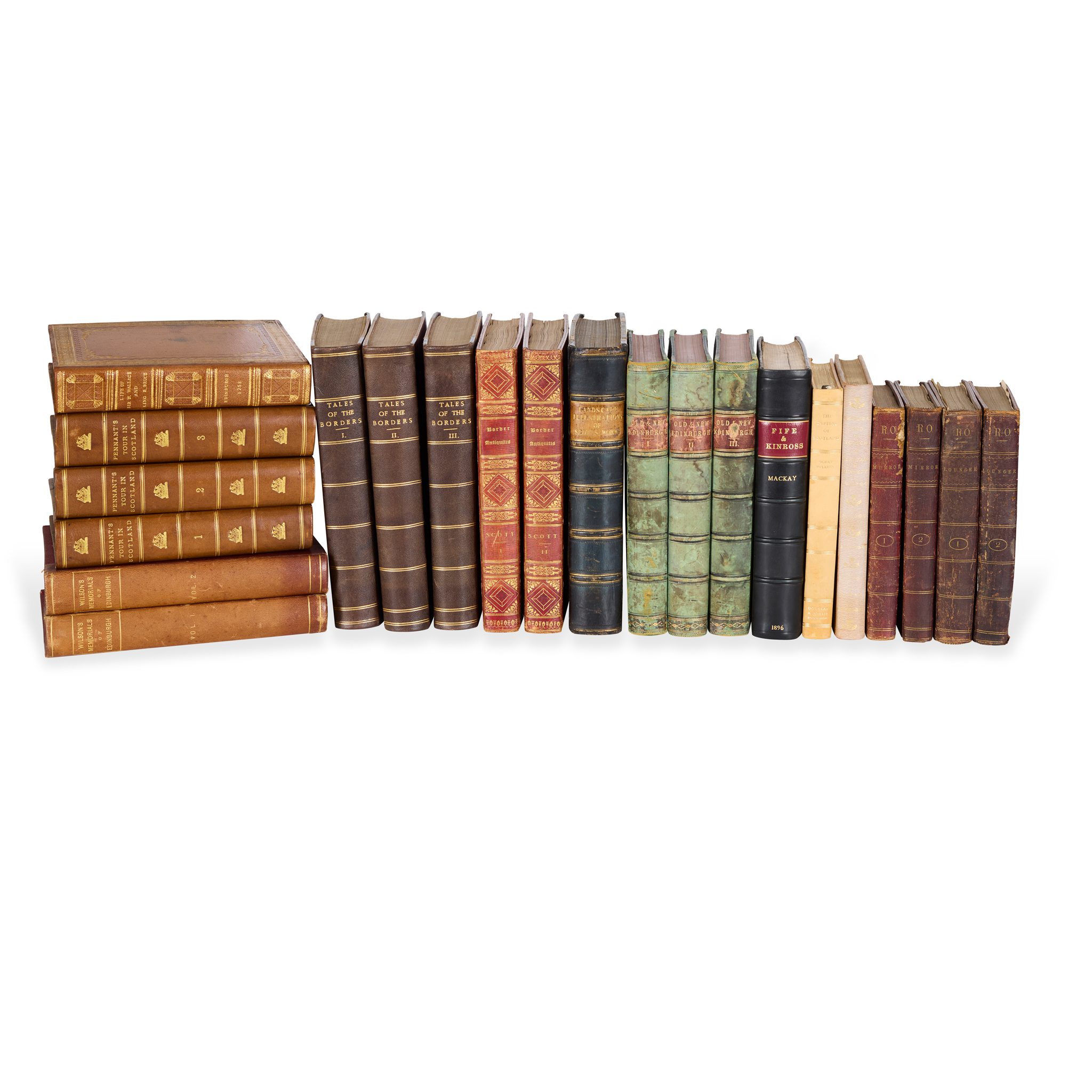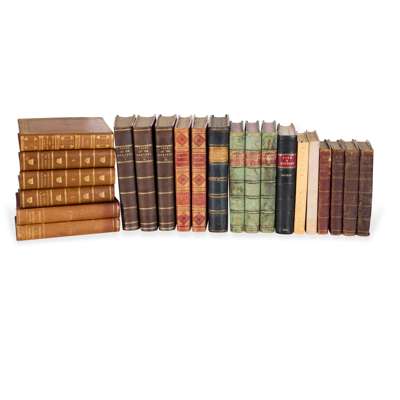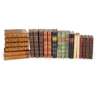
Lot 253

‘Blind Harry’ (c.1440-1492)
The Acts and Deeds of the Most Famous and Valiant Champion Sir William Wallace, Knight of Ellerslie


Auction: 18 June 2025 from 10:00 BST
Description
Together with Arnaldi Blair Relationes. Edinburgh: printed in the year 1758. 3 parts in 1 volume, 4to (22.5 x 17.5cm), [2] 403 [1], 79 [1], 443 [1] pp., early-19th-century straight-grain tan morocco gilt, rebacked to style, all edges gilt, main text in black letter, variable spotting and browning, part 1 with hole in D1 costing a few letters verso, marginal losses to S1, and 2Q2, 5O1-2 with marginal repair, closed tear in 5X2, part 3 (Robert Bruce) with small 2D1, marginal losses to 2I2 and 3U2, marginal repair to 4C1;
and 11 others, Scottish topography and history (these not collated), including: Walter Scott, The Border Antiquities of England and Scotland, 1814 (first edition, 2 volumes, 4to, contemporary straight-grain morocco richly gilt); Wilson's Historical, Traditionary, and Imaginative Tales of the Borders, and of Scotland, Newcastle: Adam & Co., c.1880 (3 volumes, 4to, near-contemporary purple half morocco, lithographic plates); and similar (22)
Provenance
From the library at Park House, Inverkeithing.
Footnote
Uncommon black-letter edition of the work responsible for establishing William Wallace as a Scottish national hero of semi-legendary stature; the first edition was printed at Edinburgh by Chepman and Myllar c.1508 and apparently survives in a single fragmentary copy. 'Despite the lack of contemporary evidence regarding Harry himself, his poem has proved to be one of the most enduringly popular and most influential in all Scottish literature. John Mair and Hector Boece used it in the sixteenth century as a historical source; Robert Burns remarked on how it had inflamed his patriotic feeling; Sir Walter Scott drew on it for his Tales of a Grandfather; and its influence is visible in the hugely popular film Braveheart (1995). The place held to this day by Wallace in the popular imagination is principally due to Harry's portrayal; and on a more general level, his contribution to the Scottish sense of national identity is fundamental, matched only by that of Scott. This has long been recognized, but recent critical reassessments of his poem have materially raised his accepted standing as a writer, demolishing the notion of an untutored "minstrel" and revealing him as a poet of genius' (ODNB).

